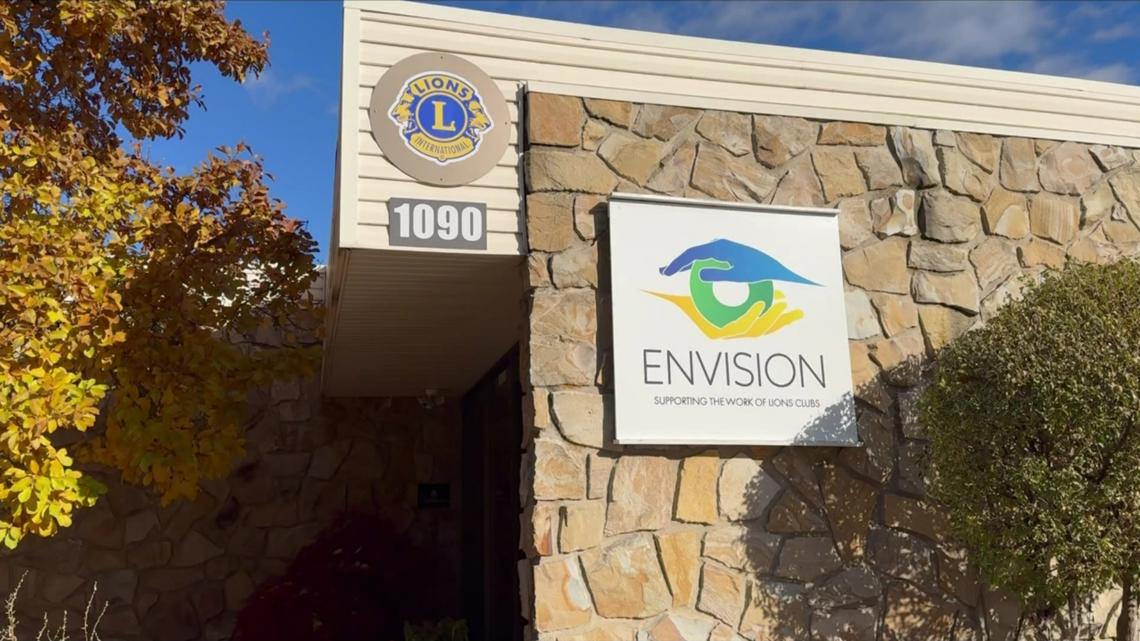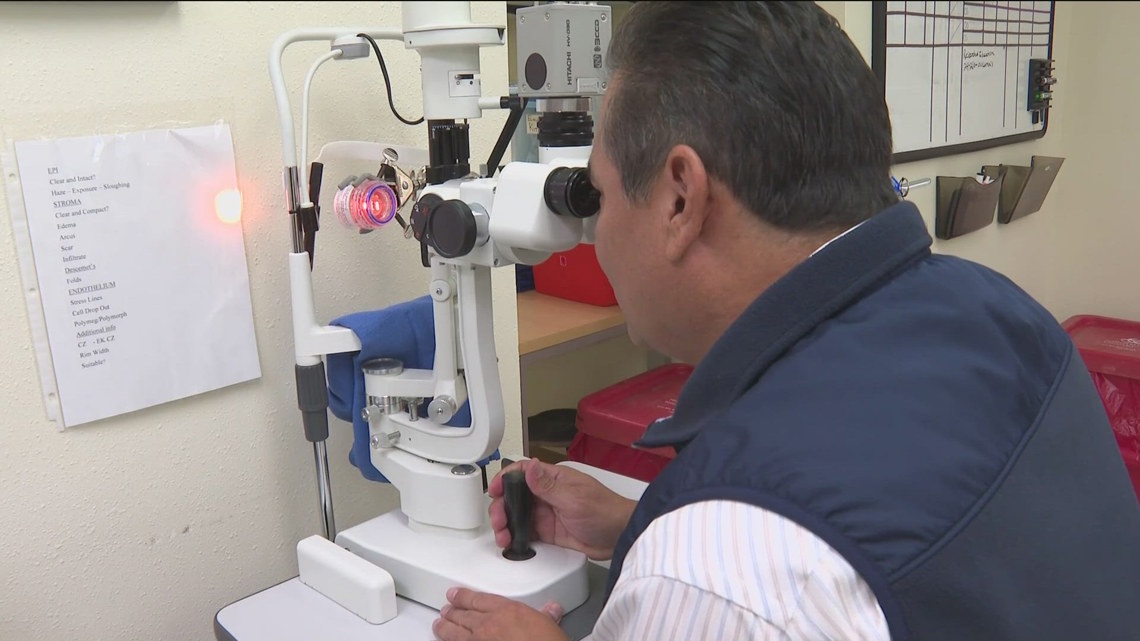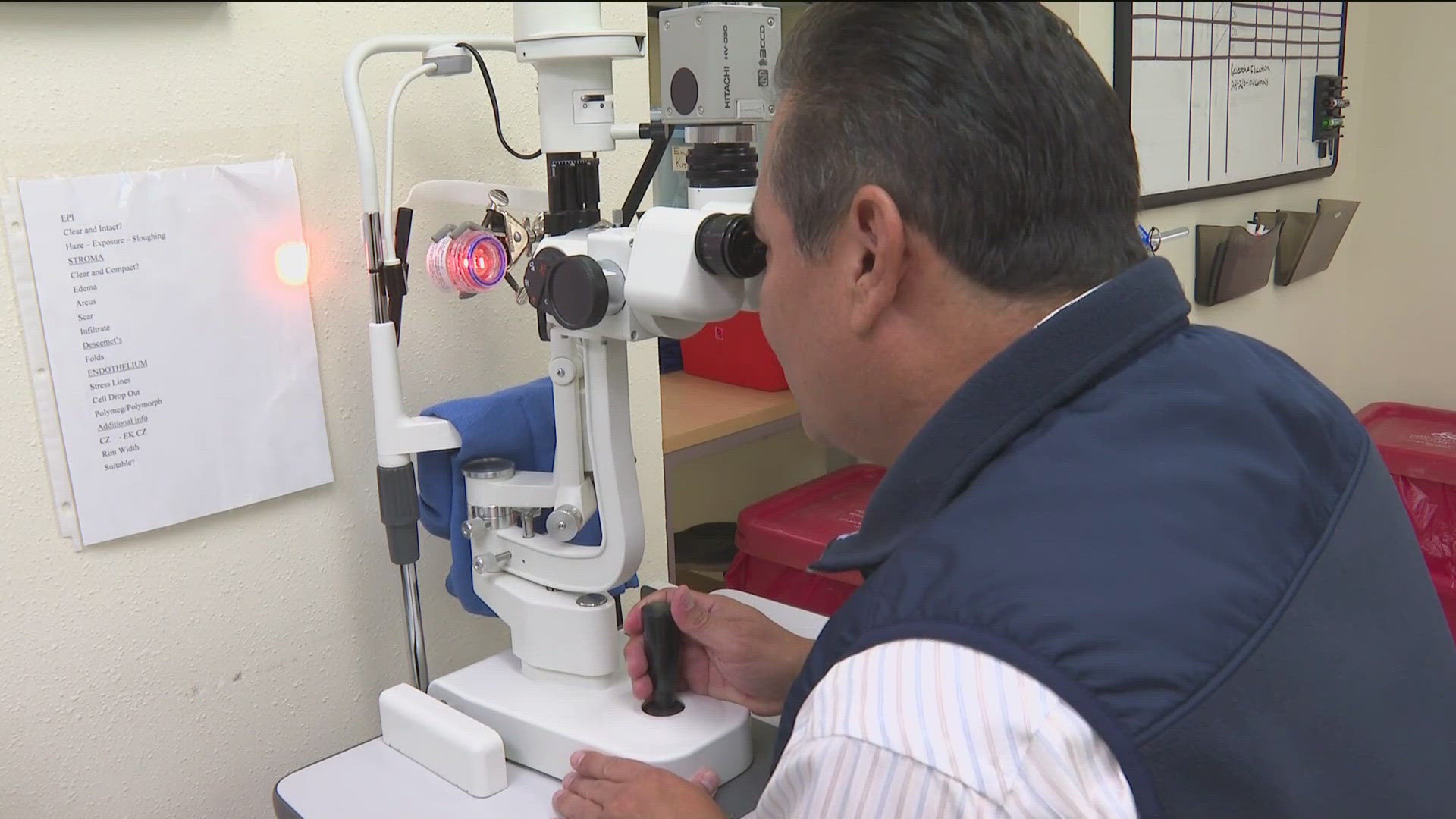BOISE, Idaho — With the holidays around the corner, it’s time to highlight the season of giving and the ultimate gift that some people are donating.
November is National Eye Donation Month and it is observed to honor and appreciate eye donors and highlight the impact they have on thousands of lives every year.
Envision Eye Bank in Boise, formerly known as Idaho Lyons Eye Bank, is the only eye bank based in Idaho.
The eye bank partners with local agencies in finding donors. Idaho State Police, more than 20 Idaho hospitals and several county coroner offices in the state will contact Envision Eye Bank upon a person’s death to determine if they could be an eye donor.
If an individual is deemed to be a good candidate for eye donations, Envision Eye Bank or the initial organization that encountered the individual will reach out to the potential donor’s family to ask for permission.
“I get told multiple times by families, and we talk to every family that donates, that they're going to grieve for their loved one,” Envision Eye Bank Executive Director Jay Lugo told KTVB. “But knowing that they're living on in someone else is going to help them just a little bit through that grieving process”


Some individuals that pass away may already be registered as organ donors in Idaho, and in this case, permission would not need to be asked of the donor’s family.
Envision Eye Bank is responsible for retrieving an eye donation and bringing it to their site where they extract the cornea.
"The cornea is a clear dome over the colored part of your eye that provides about two thirds of your vision," Lugo said. "It's that cornea that's getting transplanted."
When the cornea is separated and ready to be surgically transplanted in a recipient, Envision sends the cornea to the surgeon doing the procedure.
Lugo said in 2023, more than 70,000 corneal transplants were performed in the United States with about 200 of those being in Idaho.
According to Lugo, 62% of Idahoans say yes to being marked as donors on their driver's license, but people can still become donors even after their passing, at their family's discretion.
"Our youngest donor was two days old, and our oldest donor was 101," Lugo said.
One donor’s mother, Wendy Kynaston, spoke in support of eye donation, expressied gratitude that her son was still able to help others, even after his passing.
"My son, Justin Kenneth, was hit by a car in 2016; he spent three months in the hospital, and he ended up passing away," Kynaston told KTVB. "This program means so much to me because Justin was able to donate his corneas and help two people in two different states be able to see again."
Lugo said there's about 47 diagnoses for a corneal transplant and one of the nation's most common reasons for a corneal transplant is genetic disease.
Other transplant causations can be age-related diseases and cornea injuries.
"Quality of vision in a donor is not important,” Lugo said. “We can still transplant, regardless if you wore glasses or contacts or even if you've had cataract surgery or Lasik surgery.
Lugo said Envision Eye Bank has about 10 to 20 Idahoans on a recipient waiting list at any given time.
“The U.S. success rate is 97%," Lugo said. “Our success rate here in Idaho is 98%. That means 98% of the people that acquire a corneal transplant will have 20/40 vision or better."


"To know that I couldn't save my son, but somebody else can have the gift of sight or life, depending on what they're able to donate, is really important to me to," Kynaston said.
Envision also accepts any used or old glasses to be dropped off at their bank as they will repurpose them for another person who cannot afford or does not have access to glasses in any part of the world.
National Eye Donation Month celebrates both the recipients of corneal transplants and donor families, whose gifts provide hope and a renewed outlook on life for people in need of sight.
To become an organ donor, you can register when getting or renewing your driver’s license, but you can also register at anytime on YesIdaho.org.

